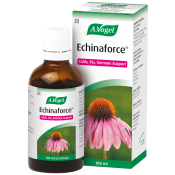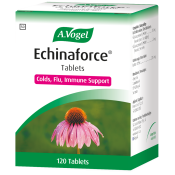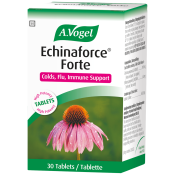And if the child is only (correct, we did just say 'only') on their third or fourth cold or respiratory tract infection of the year, the answer is 'yes, your child is perfectly normal'.
A young child's immune system hasn't built up sufficient defences against the constant series of viruses and germs they're coming into contact with daily. Which is why up until the ages of four or five, it can easily feel like they're always sick with a cold or respiratory tract infection.
Most doctors consider between six to eight colds, flu or ear infections a year to be the average. Some children can have as many as ten to twelve illnesses in a year. If each illness lasts seven to ten days, you're looking at around 60-plus sick days a year. No wonder it feels like they're always ill.
If managed correctly, these infections are not entirely a bad thing and actually beneficial in the long run. Your toddler's body needs to encounter these bugs in order to build up a lifetime of immunity and a stronger immune system so the odd mild cold isn't anything to be concerned about.
What you don't want is your child getting two infections at once, which is more common than you might think, and often occurs when they haven't yet fully recovered from one cold, their immune system is a little depleted and they return to school or playgroup and promptly pick up another circulating cold virus. Worth noting here that there are around 200 known cold viruses, and quite a few in circulation at any one time.
You also want to avoid the secondary bacterial infections or complications of colds and flu, like bronchiolitis, ear infections (otitis) and pneumonia. These often result in more severe illness, more days off school because of fevers (which means you need to take time off work) and frequently require antibiotic treatment. Antibiotics are harsh on little bodies so minimising their use is first prize.
So should you just accept your (and your child's) lot in life, and prepare to spend much of the next few years fighting your own cold war? Not at all. While you'll have to accept your youngster will get sick from time to time, there are ways you can significantly reduce their susceptibility to every single cold, flu or respiratory tract infection that crosses their path, and prevent those complications.
1. Get lots of fruits and vegetables in, every day.
Probably the most important aspect to supporting your child’s immune system is giving them lots of fresh fruits and vegetables that are packed with immune boosting vitamins and nutrients like vitamin C and zinc. Tricky, we know, especially with fussy eaters, but there are many creative ways to sneak veggies into a youngster’s diet and if they’ll drink a smoothie, oh the fun you can have adding in a rainbow of fruits and vegetables that they won’t even taste!
2. Restrict sugar
Sugar has been shown to suppress the immune system so it’s best to limit the amounts your child gets and be aware of hidden sugars in cereals, snack bars as well as fruit juices.
3. Naps and bedtimes are important for immune health
Sleep deprivation directly impacts the immune system as it reduces the number of natural killer cells which are the cells the body kills invading viruses and pathogens with. Todders need around 11– 14 hours of sleep time a day (including naps) while a pre-school child will need about 10 – 13 hours’ sleep. If your child misses their naptime at school, try get them to bed a little earlier that night.
4. Keep them moving
This shouldn’t be too difficult as young children are normally bursting with energy. Daily physical exercise is essential for good immune health as it stimulates increases in the body’s natural killer cells.
5. Keep up the hand-washing
If there’s one thing the pandemic reminded all of us, it’s the importance of hand washing. Your toddler’s too young to understand pandemics but no doubt, your (and every other adult in their life’s) habit of frequent hand washing is automatically being passed on to them now. And that will help make the world of difference to the number of infections they’ll get from now on.
6. Give them a daily immune support that works
Because there will be days or weeks where your child will decide they’re off vegetables, or they don’t sleep too well, or it’s winter and they’re encountering more bugs than normal, it just makes sense to give them something every day to help strengthen their immunity and resistance to bugs.
Many parents a natural immune product for their child and here A.Vogel’s Echinaforce Junior is a good option. It’s an all-natural chewable orange flavoured tablet that offers clinically proven immune support in children. In a study involving 201 children, Echinaforce Junior was shown to reduce:
- the number of colds and respiratory tract infections by 33%
- the number of days with fever by 67%, meaning fewer missed school /work days
- reduce the number of complications (tonsillitis, otitis and pneumonia) by 65% which in turn meant a 76% reduced need for antibiotics!
While there’s a substantial amount of clinical evidence supporting Echinaforce’s immune strengthening, antiviral, anti-inflammatory, antibacterial action in adults, this study, published in 2021, is the first study ever undertaken in children. It’s particularly significant because there are very few immune products that have been trialled in children, particularly natural ones, so it’s good peace of mind to know you’re giving your little one something that’s clinically proven in little bodies. An added bonus is the tablets are tooth-friendly, so if your child has it at bedtime, that’s okay!
To read the full publication, visit:
Reference:
1. Ogal, M., Johnston, S.L., Klein, P. et al. Echinacea reduces antibiotic usage in children through respiratory tract infection prevention: a randomized, blinded, controlled clinical trial. Eur J Med Res 26, 33 (2021).



